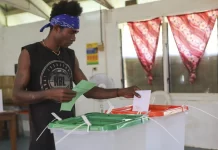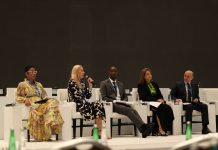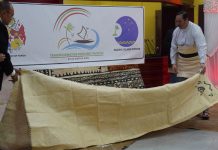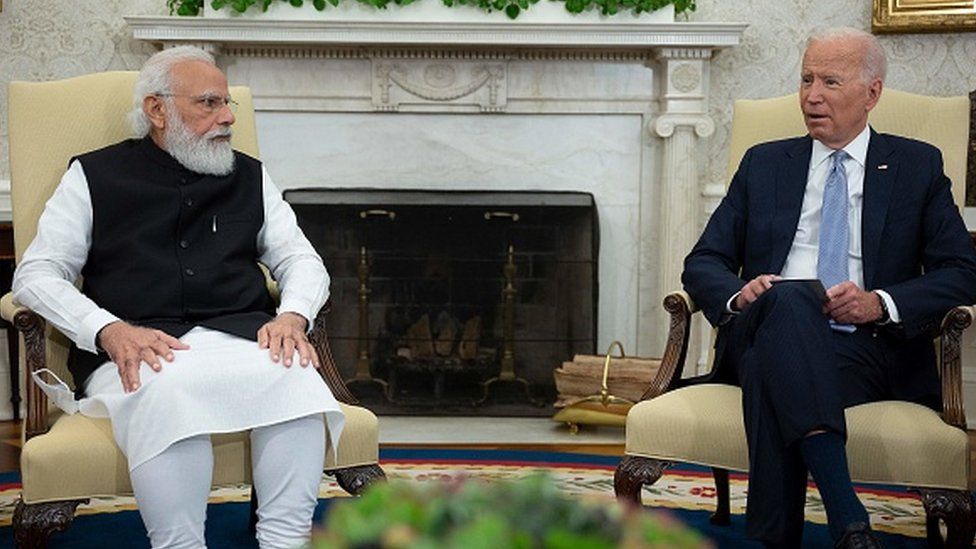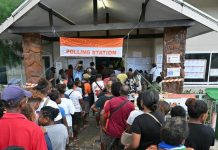The third Forum for India-Pacific Islands Cooperation (FIPIC) will be held in Papua New Guinea on 22 May – but the full membership of the Pacific Islands Forum has not been invited.
New Caledonia and French Polynesia have been full Forum members since 2016. However both French Pacific dependencies have not been invited to the regional summit in the PNG capital Port Moresby, to be hosted by Indian Prime Minister Narendra Modi.
A spokesperson from the Indian High Commission in Port Moresby told Islands Business that the FIPIC summit was limited to independent and sovereign nations.
The snub to the two Forum members comes at a time that the United States and regional allies are increasing diplomatic ties to Pacific Island countries, to challenge Chinese influence in the islands. Last year, the Biden administration launched a new National Security Strategy, promoting “cooperation with democracies and other like-minded states” to create “a latticework of strong, resilient and mutually reinforcing relationships.”
U.S President Joe Biden had been scheduled to fly to Port Moresby for a three-hour meeting with island leaders on 22 May, before travelling to Australia for a meeting of the Quad (which links the United States, India, Japan and Australia in the regional containment of China). However the U.S leader cancelled his trip to Papua New Guinea and Australia just days before the trip, to remain in Washington DC for negotiations with Republican Congressional leaders over the U.S debt ceiling.
Despite India’s long anti-colonial heritage, the refusal to include the two French colonies in the FIPIC summit strikes a jarring note – especially as other major powers have been happy to welcome Kanak and Ma’ohi leaders to recent regional meetings.
Last September, Biden welcomed Presidents Louis Mapou of New Caledonia and Edouard Fritch of French Polynesia to the inaugural US-Pacific Islands Countries summit in the White House. Both countries had previously joined the ninth Pacific Area Leaders Meeting (PALM) summit in Japan in 2021. Despite India’s decision, both French dependencies are also invited to attend the inaugural Korea-Pacific Islands leaders’ summit on 29-30 May, to be hosted by President Yoon Suk Yeol in Seoul.
The governments of both New Caledonia and French Polynesia are now led by pro-independence politicians – Louis Mapou in Noumea and newly elected Moetai Brotherson in Pape’ete – who are seeking to expend diplomatic and trade ties with Australia, New Zealand and Forum Island Countries. In October 2022, Australian Foreign Minister Penny Wong opened a new consulate general in Papeete, and last month she visited Noumea, becoming the first Australian minister to address the Congress of New Caledonia.
At a time of growing geopolitical manoeuvring in the region, India’s refusal to engage with the full Forum membership has raised eyebrows in the Suva-based Forum Secretariat. The PNG Post Courier has reported the concerns of Forum Secretary General Henry Puna, who wrote to the PNG government last month, asking that international partners work through regional mechanisms like the Forum. Puna asked PNG Prime Minister James Marape “to influence and encourage the Indian government to recognise our regional mechanisms and work with us in upholding the leaders’ vision as outlined in the 2050 Strategy for the Blue Pacific Continent.”
India, however, has eyes on Paris, not Papeete. Following previous meetings in November 2014 and August 2015, this month’s FIPIC summit comes as India is building closer strategic and military ties to the French Republic. India was the largest recipient of French arms-exports between 2017-2021, accounting for 29 per cent of total sales.
President Emmanuel Macron first spoke of an “India-Australia-France” axis when he announced France’s Indo-Pacific Strategy in Sydney in May 2018. The French President had made a state visit to India in March that year, which was followed by a return visit to France by Prime Minister Modi in August 2019. India, Australia and France then held a series of officials and ministerial meetings to co-ordinate regional policies for the Indo-Pacific, until the September 2021 AUKUS announcement disrupted relations between Paris and Canberra.
With Australia in the diplomatic sin-bin, the India-France strategic partnership saw renewed co-operation on arms sales, civil nuclear power, space research, counter‑terrorism and cyber security, and cooperation between the two countries’ navies. This year, President Macron has again invited his Indian counterpart to Paris, as the guest of honour at France’s National Day parade on Bastille Day, 14 July.
The centre-piece of France’s partnership with New Delhi is the sale of French Rafale military aircraft to the Indian armed forces. In September 2016, India and France signed a €7.87 billion (US$8.47 billion) agreement for 36 Rafale multi-role fighter jets (a deal still dogged by allegations of corruption). Paris is also hoping that India will purchase 26 Dassault Rafale-Maritime fighters for the Indian Navy. The Rafale (M) jets would operate from India’s newly commissioned aircraft carrier INS Vikrant, and Indian media are speculating whether the second deal can be struck during Modi’s July visit to Paris.
Arms sales remain a central pillar of France’s Indo-Pacific policy, with the nation’s share of global military exports increasing 44 percent between 2018-22. France has also sold Rafale fighters to Indonesia. However, with Canberra now purchasing nuclear submarines from its AUKUS partners – the United States and United Kingdom – the breach of the Australia-France US$90 billion submarine contract in 2021 remains a diplomatic sore point, despite efforts by the Albanese government to rebuild military co-operation.
SOURCE: ISLANDS BUSINESS/PACNEWS


